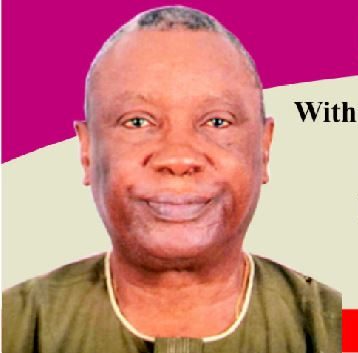From last week continues the narrative of how President Olusegun Obasanjo suspended Governor Joshua Dariye of Plateau State from office and dissolved the State House of Assembly following religious crisis in the state.
He immediately appointed the former Chief of Army Staff, General Muhammed Chris Alli(rtd) (December 25, 1944 – November 19, 2023), as Administrator of Plateau State. The suspension lasted till November 18, 2004.
On the directive of my then boss, the Secretary to the Government of the Federation, Chief Ufott Ekaette (1939 – September 25, 2019), I personally handed over, in Jos, the letter of his resumption to Governor Dariye.
On October 19, 2006, President Olusegun Obasanjo a declared state of emergency on Ekiti State for six months. He suspended the then Governor of the state, Chief Peter Ayodele Fayose (64). He equally suspended the State House of Assembly and then appointed Major-General Adetunji Idowu Olurin(rtd) December 3, 1944 – August 20, 2021) as Administrator of the state. The suspension lasted till April 27, 2007.
On May 14, 2013, President Goodluck Jonathan (67), declared a state of emergency in Adamawa, Borno and Yobe states without getting approval from the National Assembly. The President made the declaration during a nationwide broadcast.
In imposing the state of emergency, President Jonathan applied extra-ordinary measures by invoking Section 305, Sub section 1 of the 1999 Constitution of Nigeria.
However, President Jonathan stated that regardless of the state of emergency imposed, the governors in the three states would remain in office.
In his broadcast, the President declared: “Since I returned to the country after cutting short my visit to South Africa and aborting a planned state visit to Namibia, I have received detailed briefings from our security agencies. These briefings indicate that what we are facing is not just militancy or criminality, but a rebellion and insurgency by terrorist groups which pose a very serious threat to national unity and territorial integrity. Already, some northern parts of Borno State have been taken over by groups whose allegiance is to different flags and ideologies.
These terrorists and insurgents seem determined to establish control and authority over parts of our beloved nation and to progressively overwhelm the rest of the country. In many places, they have destroyed the Nigerian flag and other symbols of state authority and in their place, hoisted strange flags suggesting the exercise of alternative sovereignty.
They have attacked government buildings and facilities. They have murdered innocent citizens and state officials. They have set houses ablaze, and taken women and children as hostages. These actions amount to a declaration of war and a deliberate attempt to undermine the authority of the Nigerian state and threaten her territorial integrity. As a responsible government, we will not tolerate this. Previously, we adopted a multi-track approach to the resolution of this problem through actions which included persuasion, dialogue and widespread consultation with the political, religious and community leaders in the affected states.
We exercised restraint to allow for all efforts by both State Governors and well-meaning Nigerians to stop the repeated cases of mindless violence. Yet, the insurgents and terrorists seek to prevent government from fulfilling its constitutional obligations to the people as they pursue their fanatical agenda of mayhem, mass murder, division and separatism.
While the efforts at persuasion and dialogue will continue, let me reiterate that we have a sacred duty to ensure the security and well-being of all our people and protect the sovereign integrity of our country.”
Therefore, we shall, on no account, shy away from doing whatever becomes necessary to provide the fullest possible security for the citizens of this country in any part of the country they choose to reside.”
To be concluded
•Teniola, a former director at the Presidency, wrote from Lagos.
The post The supreme powers of the President(5), by Eric Teniola appeared first on Vanguard News.

